Cast iron sewer pipe has been the popular option of sewer lines for homes built before the 1970s due to the following reasons:
- Pipes made of plastic are not yet available during that time.
- Cast iron pipes have a long lifespan that can last between 80-100 years.
- Cast iron sewer plumbing is sturdy and can hold out against heavy loads or high pressure.
- The type of material used for this pipe helps in reducing the sound of water and sewage flowing very well.
- It can resist heat.
However, despite many advantages, one major downside of this type of sewer pipe is its likelihood to rust over time.
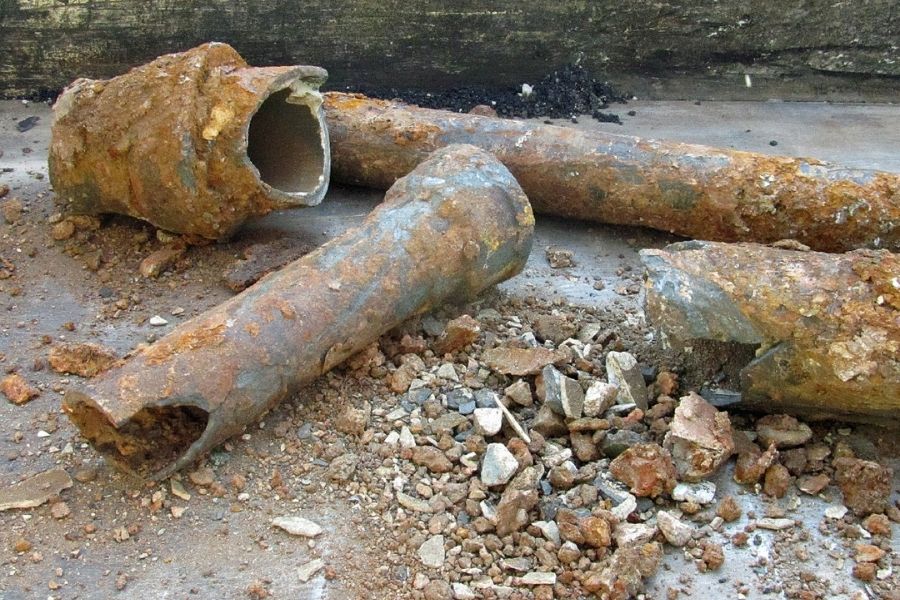
Related Articles
- When Should I Request Sewer Repair?
- How often do sewer lines need to be replaced?
- What You Need to Know About Trenchless Sewer Repair Cost
If you have a house that’s built in the 1930s and 1940s, your sewer plumbing system may be reaching the end of its lifespan, and rusting and leaking might be occurring already.
Aside from rust and corrosion, other factors such as erratic changes in weather, tree roots, type of soil, and quality of water could affect the longevity of your pipes as well.
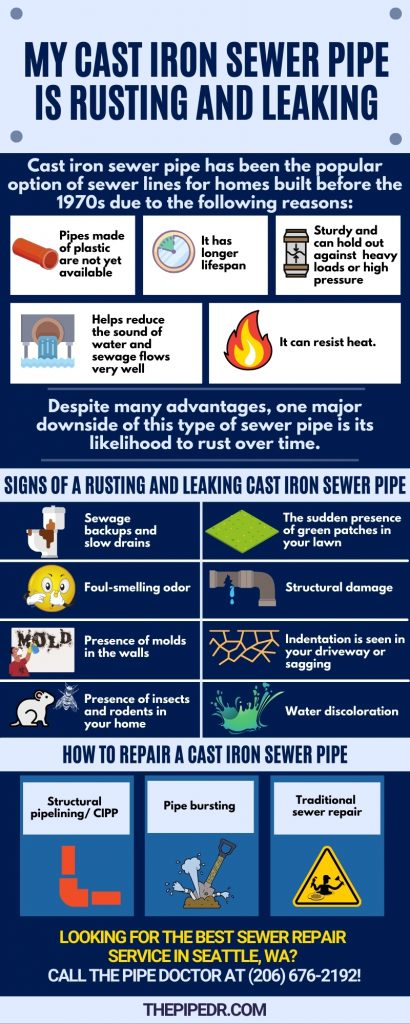
That being said, it is not uncommon that damage to your sewer lines will happen. Here are the following signs to watch for to help you determine that your cast iron sewer pipe is rusting and leaking:
Signs of a rusting and leaking cast iron sewer pipe
Sewage backups and slow drains
You’ll know when cast iron sewer pipes in your property start to rust and leak if you experience sewage backups. You’ll also notice that water from your sink and toilet takes a long time to drain. This is due to the accumulation of sewage backups and over time, it may damage your toilets and sinks. Frequent use of draining chemical products will not resolve the problem. Keep in mind that these products can damage the cast iron pipe aggravating the issue. Hence, call a sewer repair contractor so your concern can be addressed properly.
The sudden presence of green patches in your lawn
When your pipe leaks, sewage will eventually come out from your home and we don’t want that to happen but plants love it. Sewage water can fertilize and enhance the growth of plants, so if you suddenly see green patches on your lawn, call a professional plumber to check for the leak.
Foul-smelling odor
As your cast iron sewer pipes start to rust and leak, it begins to show some signs of cracks. These cracks would allow the release of sewer gas to your home which is why you smell the stinking odor. This is undesirable and a health hazard to you and your family. If this happens to your home you might consider calling a professional to do a sewer camera inspection so you can determine the exact location of the crack.
Structural damage
If you see signs of structural damage such as cracks in the walls it could indicate a more serious and potentially expensive repair. Leaks from your cast iron plumbing that was left unfixed could affect the foundation of your home. Repair of your home’s foundation could be quite expensive so you need to ask the help of a sewage repair expert to fix this issue.
Presence of molds in the walls
A small leak in the pipe is enough to cause molds to grow in your walls. The presence of molds in your home could pose a health risk to you and your family so it’s a good idea to address this issue immediately.
Indentation is seen in your driveway or sagging
When you have a cast iron sewer pipe that leaks, this will produce a pool of sewage water in the long run. The pool of water will eventually disappear in the soil causing some parts of it to sag and this indentation in your driveway may be difficult to locate but it’s a clear sign that your cast iron plumbing is failing.
Presence of insects and rodents in your home
Insects and rodents are not a good thing to see especially when you see them inside your home. They could be an indirect sign that your cast iron pipes are rusting and leaking. If you keep calling pest exterminators it will not resolve the issue unless you address the source of the problem first.
Water discoloration
Seeing brownish and yellowish color from your taps indicates that you might also have cast-iron water pipelines that are beginning to wear down. The discolored water is due to the presence of rust that you commonly see when you have a cast-iron water line. It will also tell you that you need to replace your pipes.
How to repair a cast iron sewer pipe
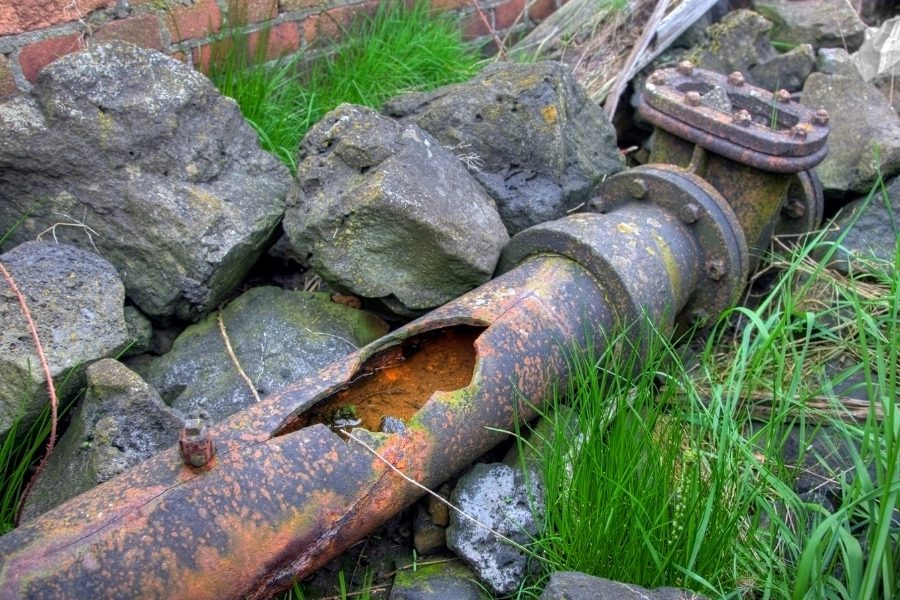
Sewer repair of cast iron pipes involves 3 steps:
Structural pipelining (also known as cured-in-place-pipelining or CIPP)
This method is a trenchless way to repair your pipes since it makes use of an epoxy-soaked liner inserted into the damaged pipe. This results in a seamless pipeline inside the existing one.
Pipe bursting
If you have a collapsed sewer pipe, it can no longer be repaired by pipelining. Hence pipe bursting is the alternative trenchless method to repair your damaged pipes. It breaks up the existing pipe clearing the way for a new and flexible sewer line to occupy the space.
Traditional sewer repair
However, for an extensively damaged pipe that cannot be resolved either by pipelining or pipe bursting, the only option is the traditional sewer repair which means concrete excavation and digging.
Looking for the Best Sewer Repair Service in Seattle, WA? Call The Pipe Doctor!
The Pipe Doctor provides different sewer services such as sewer repair, sewer inspection, sewer cleaning, and sewer replacement in the Seattle, WA area. If you are looking for an affordable and reliable plumbing and sewer experts, don’t hesitate to give us a call or shoot us an email!
The Pipe Doctor
12345 Lake City Way Ste 311 Seattle, WA 98125
(206) 676-2192
thepipedr@gmail.com
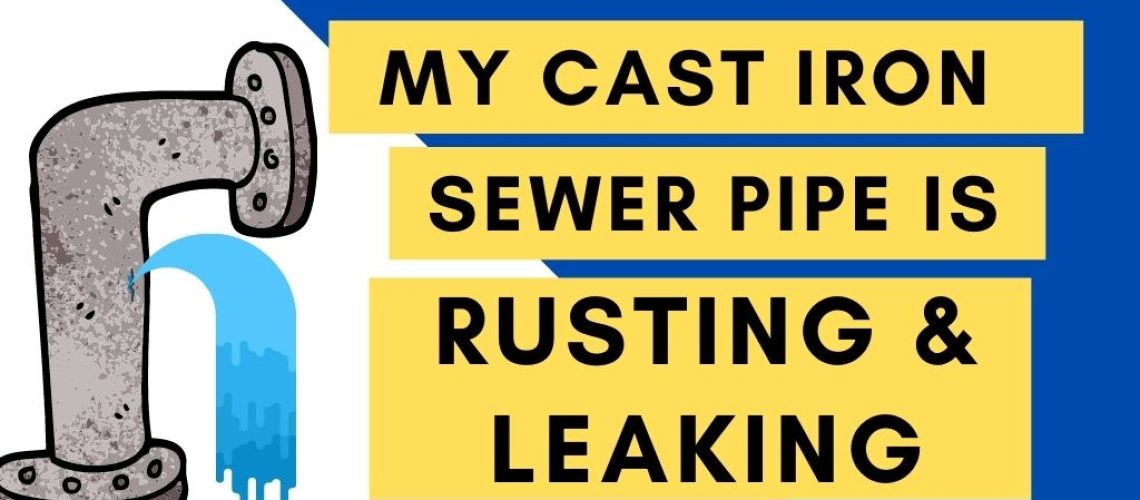
5 Responses
This was a fascinating read! Although cast iron pipes can endure between 80 and 100 years, natural wear and tear or rust susceptibility can cause damage to the pipe much sooner. You can replace the cast iron pipe with PVC, which has a life expectancy of 45 years and is both cost-effective and robust, ensuring a continuous flow rate in residential areas. On the other hand, cast iron is an excellent alternative for commercial locations that demand a quiet plumbing system.